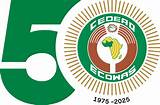EU, AU Deepen Partnership for Greener, Fairer and More Resilient Future in Africa.
By Raymond Enoch
The European Union (EU) has reaffirmed its commitment to strengthening strategic cooperation with the African Union (AU) and African partners to advance sustainable development, green transition, and shared prosperity across the continent.
Speaking at a Joint Breakfast Briefing on the 24th of October 2025 and coming ahead of 10th to 21st November 2025, Beelen, Brazil and the AU-EU Africa Summit 24th and 25th November 2025, Luanda, Angola the EU Ambassador emphasized that “the EU, as the biggest trading and development partner with Africa, is committed to working hand in hand with the AU and African partners to build capacity, strengthen sustainable value chains, and ensure that the green transition opens new opportunities for investment, innovation, and decent jobs across our continents.”
He reiterated the EU’s resolve to protect the planet, combat climate change, and promote sustainable development, stressing that prosperity must not come at the expense of the environment or future generations.
During the session, participants were briefed on two flagship EU initiatives — the European Union Deforestation Regulation (EUDR) and the Carbon Border Adjustment Mechanism (CBAM) — which are central to the EU’s global climate and sustainability strategy.
Monika Henksey, Director for Green Diplomacy and Multilateralism at the Directorate-General for Environment (DG ENV), highlighted that the EUDR seeks to ensure coherence with EU climate and biodiversity commitments. She explained that deforestation and forest degradation account for 115 percent of human-made greenhouse gas emissions, and in the last 30 years, an area of forest larger than the entire EU has been destroyed.
She added that EU consumers play a significant role, with Europe’s consumption responsible for about 10 percent of global deforestation-linked production. The regulation aims to establish a global level playing field with high environmental standards, protecting forests while promoting fair trade and competitiveness.
Maria Elena Scoppio, Director for Indirect Taxation and Tax Administration at the Directorate-General for Taxation and Customs Union (DG TAXUD), presented on the Carbon Border Adjustment Mechanism (CBAM) — a key tool to support decarbonisation.
She explained that CBAM mirrors EU carbon pricing through a new mechanism for imports, targeting carbon-intensive sectors and ensuring that the carbon price paid by third-country operators is fairly considered. The mechanism, she noted, is addressed to companies rather than countries and aligns with the EU’s international trade and environmental commitments, including compliance with World Trade Organization (WTO) rules.
The presentations were followed by a Q&A session and an interactive networking opportunity for EU, AU, and member state representatives. The discussions underscored the importance of continued dialogue to bridge policy differences while deepening cooperation, partnership, and investments in green growth.
Despite existing challenges, both the EU and AU reaffirmed their joint determination to build a greener, fairer, and more resilient future.
“This is about the planet, the people, and prosperity,” the EU Ambassador concluded, emphasizing that sustainable transformation requires shared commitment, innovation, and inclusive growth for current and future generations.







